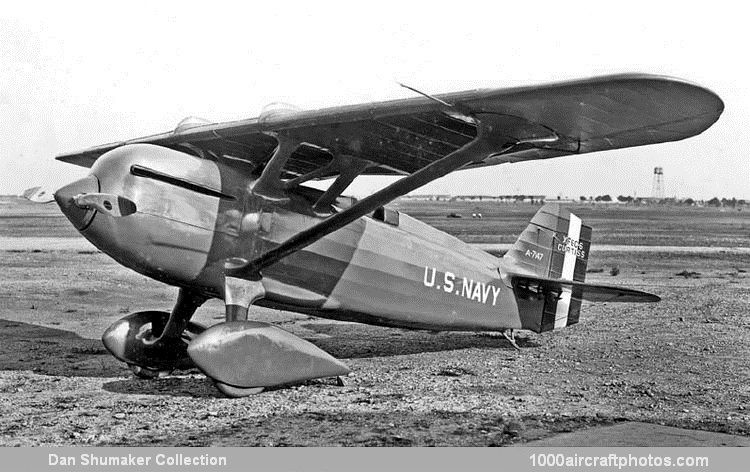07/31/2009. Remarks by Johan Visschedijk: "Shortly after winning the Curtiss Marine Trophy Race in a float-equipped Curtiss F6C-3 on May 31, 1930, Captain Arthur H. Page undertook discussions with Lieutenant W. S. Diehl of the Navy Bureau of Aeronautics. The aim of Page was to modify a Curtiss machine to win the 1930 Thompson Race to be held on September 1, 1930, and erase the humiliating defeat of 1929.
Curtiss submitted a proposal to the Navy to turn a standard F6C-3 into a racing machine, changes included fitting a special 750 hp Conqueror engine, replacing the wings with a set having a different airfoil section, fitting wing skin radiators and refairing the fuselage. The estimated top speed with these changes was in the order of 250 mph.
Most of the planned changes to an F6C-3 were accepted by the Navy. There was one important exception to the plan. The Navy did not agree to the construction of a new set of wings with a C-62 low-drag airfoil in place of the standard Clark Y airfoil. In an attempt to reduce the drag, the entire lower wing was eliminated! What had been a biplane was now a parasol monoplane.
The aircraft, designated XF6C-6 and known as "Page Navy Racer", was fitted with wing skin radiators, a cowling and prop spinner not unlike those that had equipped the R3C racer. Although the tail skid was retained, a set of streamlined wheel pants were fitted to the faired, single-strut landing gear.
Captain Page was the first to be waved off. After he had completed three of the twenty laps, he was far in the lead, with speeds around the circuit of between 207 and 219 mph (336 and 352 kmh). By the seventeenth time around, he had lapped the entire field. Then catastrophe occurred.
Before the packed stands (75,000 had jammed in to see the air spectacle) the XF6C-6 meandered out of control, half circled the field and crashed. Page was removed from the wreckage, but died in a hospital that night. The accident was caused by carbon monoxide fumes from the exhausts which had accumulated in the cockpit. With the death of Captain Page, American military aircraft were no longer entered in air races. An era had ended."
